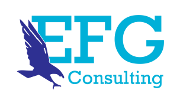These Gulf economies have their priorities geared towards the right targets
Major Gulf economies such as Saudi Arabia and UAE have embarked on programmes to transform their nations into diversified, resilient, knowledge-based economies. Flagship strategies such as Saudi Arabia’s Vision 2030 and the UAE’s Centennial 2071 are helping to shape policies, provide a vision and framework for transition and offer incredible opportunities for growth and investment in the region.
Currently, hydrocarbons account for 68 per cent of total revenue in Saudi Arabia and 36 per cent in the UAE. However, the crash of oil prices in 2020 during the Covid pandemic and subsequent boom in prices this year, demonstrate their volatility.
Economic diversification
To reduce the risks associated with concentration in one economic sector, Gulf countries have embedded economic diversification into their national visions and established programmes to grow the private sector. These policies have been supplemented by free and special economic zones. For example, the UAE has 45 free zones that allow 100 per cent foreign ownership.
Reforms have also been introduced to better align graduates’ skills with market needs and support young entrepreneurs.
Privatisation of state-owned entities has also been a growing trend. For example, a 6.5 per cent stake in Dubai Electricity and Water Authority, the UAE’s largest in history, recently rewarded investors with a 20 per cent jump on the first day of trading.
Certain sectors have been major beneficiaries of government stimuli and offer attractive investment opportunities.
Burgeoning sectors
For example, in 2020, 1.3 per cent of UAE GDP was allocated to R&D. And Saudi Arabia aims to become a global leader in R&D with an annual investment equivalent to 2.5 per cent of GDP in 2040. The plans aim to add $16 billion to Saudi GDP by 2040, while creating high-value jobs in science and technology.
AI is a major focus for Gulf nations. In 2017, the UAE released its Strategy for Artificial Intelligence (AI), which sought to integrate technology into emerging industries and provide tailored regulations. PwC projects AI will contribute $96 billion to the UAE’s economy in 2030.
The Saudi Data and AI Authority (SDAIA) was created in 2019 with a mandate to drive the Kingdom’s data and AI agenda. The Kingdom recently signed a series of partnership agreements with Huawei and Alibaba Cloud. And the Saudi government has earmarked $20 billion for the advancement of AI.
Other key sectors are predicted to grow significantly.
The UAE ranks among the Top 10 global tourist destinations; and the UAE Tourism Strategy 2031, aims to raise the tourism sector’s contribution to GDP to $122.5 billion. In Saudi Arabia, tourism is poised to become a key driver of the Kingdom’s diversified economy, aiming to contribute 10 per cent to GDP.
The expansion of private healthcare coverage and the modernization of health infrastructure will continue to drive market growth in pharmaceuticals and healthcare.
Major regulatory changes have taken place in the UAE F&B sector following the release of the National Food Security Strategy 2051. This streamlines licensing and regulations for farming, as well as fast-tracking approvals for agritech initiatives and R&D rebates.
Moreover, the UAE Government aims to more than double the contribution of industrial manufacturing to the UAE’s GDP to 25 per cent.
The ESG revolution
The Dubai Financial Market launched an ESG index in 2020. Abu Dhabi’s sovereign wealth fund Mubadala, established a responsible investment arm in 2021. And Saudi Arabia’s Public Investment Fund (PIF) uses ESG to consider investment strategies.
In fact, 46 per cent of CEOs in the Middle East are aiming to increase ESG investments over the next three years. ESG investments not only contribute toward energy transition but they are also lucrative – research indicates that global ESG assets may hit $53 trillion by 2025.
Expert partners
The Gulf’s economic diversification strategies bring lucrative opportunities for investment. From home-grown high-net-worth individuals, institutional investors and entrepreneurs to foreign investors and global brands – the Gulf is very much open for business.
For those seeking to contribute to this growth, collaboration with wealth management, investment and banking experts who can help investors deliver long-term, risk-adjusted returns is vital.
From the Gulf’s lively IPO market to government and corporate debt, commodities, property, private equity and hedge funds – investment experts can provide access to a range of asset classes. They can also help investors identify goals and provide advice on structuring portfolios accordingly.
SOURCE & CREDITS : GULFNEWS.COM

